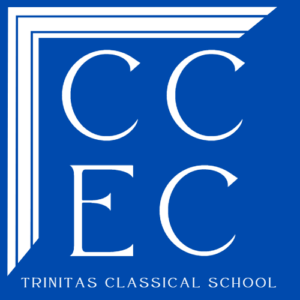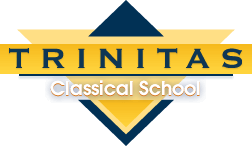 In this Classical Christian Education Corner, we continue our discussion of our new tagline, “preparing students for lives of faith, reason, and virtue” with a look at “reason”. It seems obvious that a school would have the cultivation of reason as a primary goal. Isn’t that what schools are for? This goal may not be as widespread as one would think, or hope, however. Certainly, some sort of knowledge and skills are objectives for any learning environment, but classical Christian schools operate with a more robust concept of human reason—one that is informed by the view of human nature mentioned in our previous post about faith. In that discussion, we said that one principle of a classical Christian education is: “there is more to this world than what is seen” — that the material world is not all there is; and, human beings, having been created in the image and likeness of God, are not mere material beings. What implications does this have for education?
In this Classical Christian Education Corner, we continue our discussion of our new tagline, “preparing students for lives of faith, reason, and virtue” with a look at “reason”. It seems obvious that a school would have the cultivation of reason as a primary goal. Isn’t that what schools are for? This goal may not be as widespread as one would think, or hope, however. Certainly, some sort of knowledge and skills are objectives for any learning environment, but classical Christian schools operate with a more robust concept of human reason—one that is informed by the view of human nature mentioned in our previous post about faith. In that discussion, we said that one principle of a classical Christian education is: “there is more to this world than what is seen” — that the material world is not all there is; and, human beings, having been created in the image and likeness of God, are not mere material beings. What implications does this have for education?
First, education is not merely instrumental. It should not be designed primarily to help students meet their material needs and desires. The cultivation of reason, while certainly of instrumental value, is a good in itself. Subjects like grammar, Latin, Greek, and classic literature, and methods like memorization, critical thinking, debate, and rhetoric, can help students achieve many things, but they also enable students to develop well their God-given capacity for and delight in reason. A comparison to the body may help to illustrate. It’s good to exercise the body so that we can do the various things we need to, but it’s also good to cultivate physical capacities simply because the body is God’s gift and he designed us to delight in its activity. Developing our minds and bodies is part of what God intended for human flourishing.
